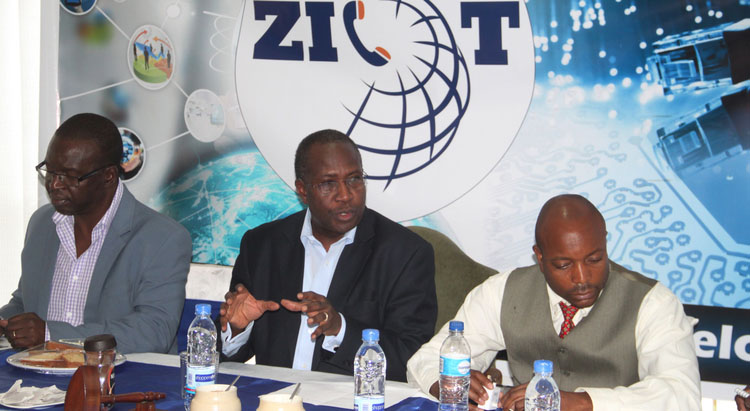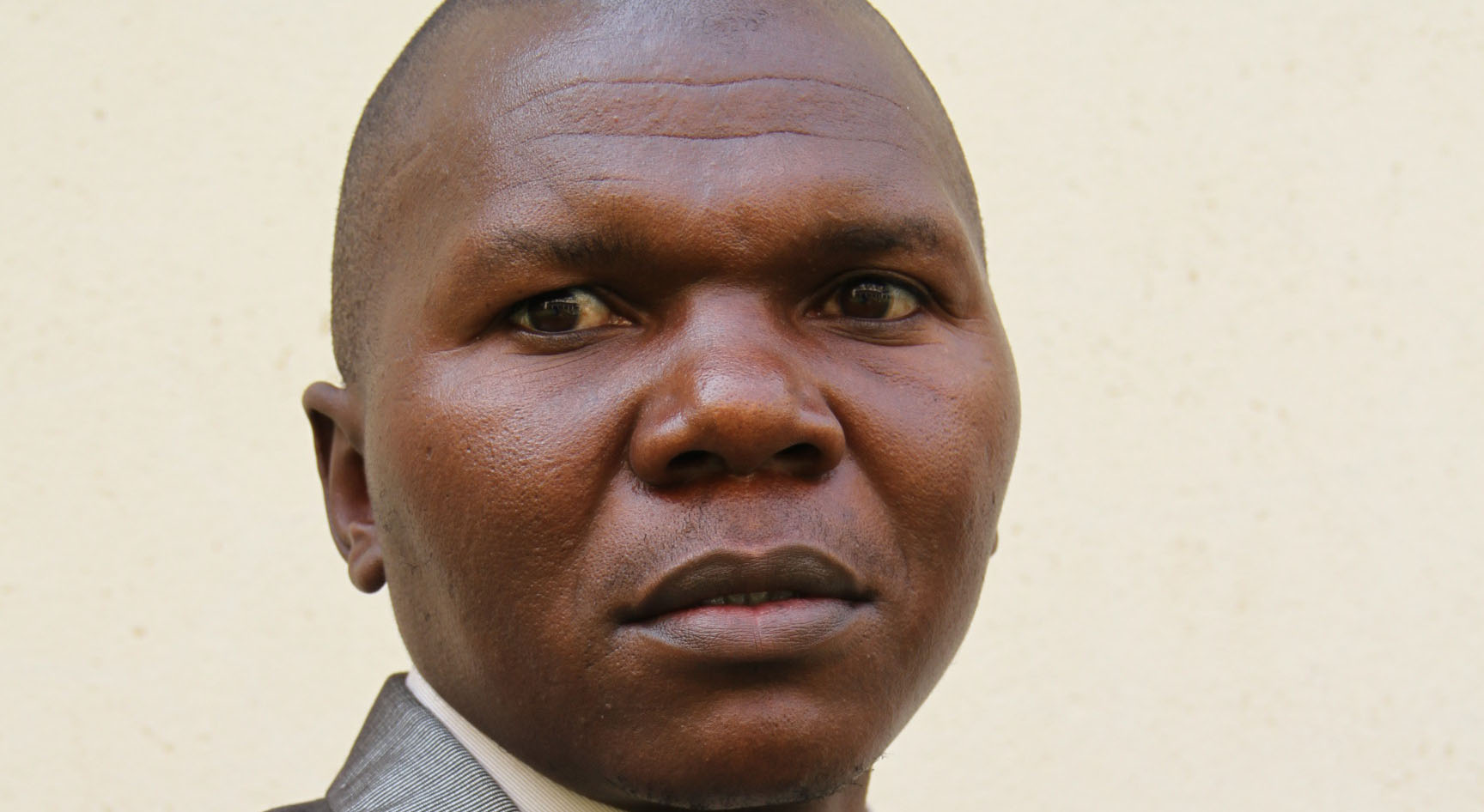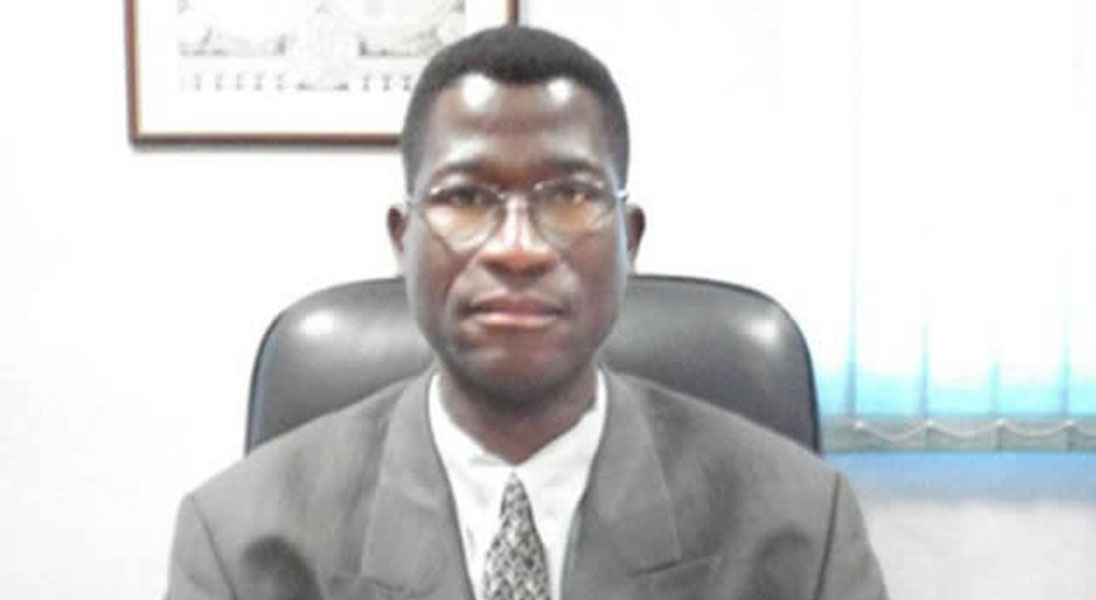$40 000 Boost for young engineers
- By Zimpapers Syndication |
- 08 Jan, 2026 |
- 0

Sifelani Tsiko ---
The Zimbabwe Institution of Engineers (ZIE) has secured a $40 000 grant from the Royal Academy of Engineering (UK) to help develop engineering and technical skills for young Zimbabwean engineers taking their first steps into industry.
ZIE chief executive Dr Sanzan Diarra told Zimpapers Syndication recently that the budding engineers skills boost initiative will help clear the path for young engineers seeking to gain new skills and practical experience.
“We are very excited that we have managed to secure $40 000 for capacity building from the Royal Academy of Engineers in UK for our young engineers,” he said.
“This will be for young engineers who have not yet attained their professional engineering status. This initiative will enable them to be groomed and mentored to the status of a registered engineering professional.”
Dr Diarra said the programme will start in January next year and run until June 2017.
“After the evaluation of the programme, Zimbabwe will then be eligible for a bigger grant to support scores of young engineers who need to improve their skills,” he said.
“For this first tranche, we will be targeting 30 – 50 engineering and technician graduates.”
The programme is part of Royal Academy of Engineering (UK)’s Global Challenges Research Fund (GCRF) which aims to support young people who have not been able to secure apprenticeships - in launching their careers.
They provide hands-on training, prepare students for the workplace and aim to help them progress into apprenticeships and employment.
GCRF Africa Catalyst programme offers grants of up to £40 000 to organisations supporting the engineering profession in sub-Saharan Africa.
Dr Diarra said the initiative will help Zimbabwe to provide budding engineers with an extensive and worthwhile experience of engineering activities.
“There is no doubt this initiative will be beneficial to our young engineers who are seeking some learning opportunities as they take their first steps into the industry,” he said.
“We are looking forward to working closely with young engineers on this initiative. I’m quite certain it will generate excitement and enthusiasm among them.”
The UK academy is collaborating with various African engineering institutions in a wide range of short pilot projects to run between mid-December 2016 – mid-June 2017.
After evaluation, it plans to use to the experiences learnt to shape the future of the programme, when larger proposals will be accepted.
The academy says the overarching aim is to ensure there is sufficient, and appropriately skilled, local engineering capacity to participate in and drive national and regional development in sub-Saharan Africa.
GCRF Africa Catalyst programme’s objectives are to:
-Build engineering capacity by improving engineering education at all levels to meet recognised international standards.
-Support the development of professional engineering institutions/councils/associations that can effectively support the profession and promote professionalism.
-Support the Federation of African Engineering Organizations (FAEO) in its leadership role across the continent.
-Strengthen the evidence base for the role robust engineering institutions play in driving development, such as mapping engineering capacity in sub-Saharan Africa.
Young engineers in Zimbabwe and most other African countries still face problems in finding industrial placements for their experiential training years.
In addition to this, African engineering experts say most public and private companies requiring engineering expertise often lack the capacity to sustain human capital development to ensure enhanced productivity.
They also note that there is an urgent need to train more graduate engineers to help address the gulf created by an ageing workforce in all key sectors –energy, infrastructure, mining, ICT, water and manufacturing.
Most studies on the continent have also identified the dearth of young engineers and technical staffs as a huge challenge for the development of the continent.
Dr Diarra said support by seasoned Zimbabwean and foreign professionals under the initiative being facilitated through local and overseas exchange programmes will help boost the skills of young engineers.
Experts say Zimbabwe and most other African countries need to support young engineers to enhance capacity and efficiency in their economies.
“We need to set aside more funds for capacity building to support our young engineers who are critical in driving the future growth of our continent,” said a Harare –based engineer.
Engineers are key players in the solutions to important continental and global challenges on issues such as climate change, transport, energy, mining, ICT, water and public works.
Engineering experts often bemoan the poor visibility of engineering and its role in sustainable development in Zimbabwe and Africa.
They say greater focus needs to be placed on raising the visibility of the profession and motivating young African students to get interested in career paths in engineering.
Zimbabwean engineering professionals have contributed immensely to infrastructure development in various parts of the world - a clear testimony of the role of the country’s education system in developing a highly educated crop of engineers.
Despite the success, Zimbabwe still needs more engineers to help develop the country and improve the quality of life for the people.
According to a 2013 Unesco report, the shortage of engineers is a major concern in Africa and across the world where there has been declining interest and enrolment of young people, especially women.
Experts say engineering is vital to addressing basic human needs, improving the quality of life and creating opportunities for sustainable prosperity on a local, regional, national and global level.
An estimated 2,5 million new engineers and technicians are required in sub-Saharan Africa to achieve the post 2015 development agenda, now known as the Sustainable Development Goals - of improved access to clean water and sanitation.
In Namibia, Zimbabwe and Tanzania, there is one qualified engineer for a population of 6 000 people compared to one engineer per 200 people in China, according to Unesco.
Through its Engineering Initiative, UNESCO is working with African countries to put science, technology, engineering and mathematics (STEM) education at the heart of national development strategies.
Zimbabwe has in recent months issued increased calls for skilled graduates, in particular in engineering, in order to meet the engineering needs of the country.
Demand for skilled engineering professionals across all demographic groups is still high.
Some of the greatest challenges lay in the supply side of the equation.
There is a very small pool of school leavers that are suitably qualified to enter engineering programmes, and of these only a small sub-set are choosing to study engineering.
To drive the numbers up and motivate more, the Government embarked on the STEM programme.
The programme is opening up opportunities for students to study science subjects and to ease problems facing students who want to do science courses.
South Africa has an estimated 315 registered engineers per million of the population while Japan by comparison has 3 300 engineers per million of the population.
Norway tops the scale at 8 190 engineers per million of population while the UK has 3 220 and the US has 2 570.
These statistics link the presence of engineers to the general health of the economy.
But critics say given the multifaceted nature of engineering practice sketched, it is also necessary to ask more in - depth questions about this apparent need for engineers and other engineering professionals.
They say some engineering disciplines are in greater demand than others.
Countries in Africa, they say, need to identify areas which still require more engineers to help support them and nurture their growth.
In all this, they further say, emphasis must be placed on young engineers. -Zimpapers Syndication
No Comments














Comment